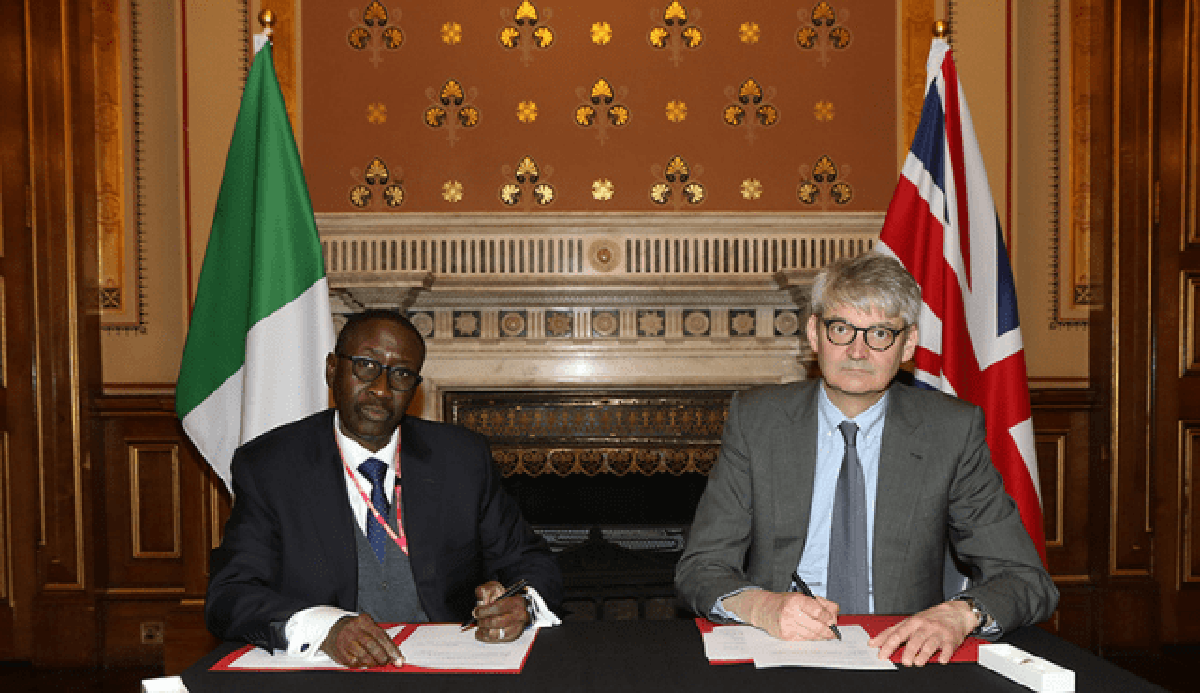There are no products in your shopping cart.
| 0 Items | £0.00 |


NIGERIA and the UK have signed a strategic defence partnership agreement involving both nations committing themselves to working together in a host of areas including policing and asset returns as part of a commitment to fighting international crime.
Retired Major General Babagana Munguno, Nigeria's national security adviser signed the pact on behalf of the government, while Sir Stephen Lovegrove, his UK counterpart signed on behalf of Britain. At the three day summit in London, Ambassador Sarafa Ishola and his UK counterpart Catriona Lang, were also in attendance.
Nigeria's delegation comprised of the chief of defence staff General Lucky Irabor, the permanent secretary in the ministry of justice and the chief of defence intelligence. Also in attendance were the comptroller-general of the Nigeria Immigration Service, the comptroller-general of the Nigerian Prison Service and the director of legal services of the Federal Ministry of Foreign Affairs.
Over a three day period, the summit covered several aspects of Nigeria-UK security cooperation including civilian policing, human rights, civilian-led civil-military cooperation, defence cooperation, women, peace and security. Both governments made far-reaching commitments on enhanced cooperation, strengthening civilian policing, human rights, women youth, peace, security, serious organised crimes and assets return among other matters.
This Nigeria-United Kingdom Strategic Defence Partnership has its origins in a working visit of former Prime Minister Theresa May, to Nigeria in August 2018. As part of the outcome of the visit, two agreements were signed, one of which was the security and defence partnership agreement, under which bilateral security consultations would be held at alternate capitals.
Under the terms of the pact, they agreed to explore future cooperation between the UK armed forces and Nigeria’s defence special operations force. This is designed to build Nigeria's capacity to respond to the range of security challenges it faces effectively and in a human rights compliant way.
A joint statement issued at the end of the summit read: "The United Kingdom and Nigeria reaffirm our commitment to work together to respond to the shared threat of terrorism. In support of this commitment the United Kingdom offers to share our experience of delivering a multi-agency approach in response to terrorist incidents.
"In addition, the United Kingdom also offers to share insight on terrorist financing, trans-border movements and the illegal movement of small arms and light weapons. Also, the United Kingdom and Nigeria commit to continue working together in support of an integrated strategy that addresses underlying drivers and vulnerabilities to violent extremism, as well as transparent, comprehensive and human rights compliant defection, demobilisation, disengagement and de- radicalisation and reintegration processes, which provide a genuine pathway for members of violent extremist organisations to defect and reintegrate into their communities."